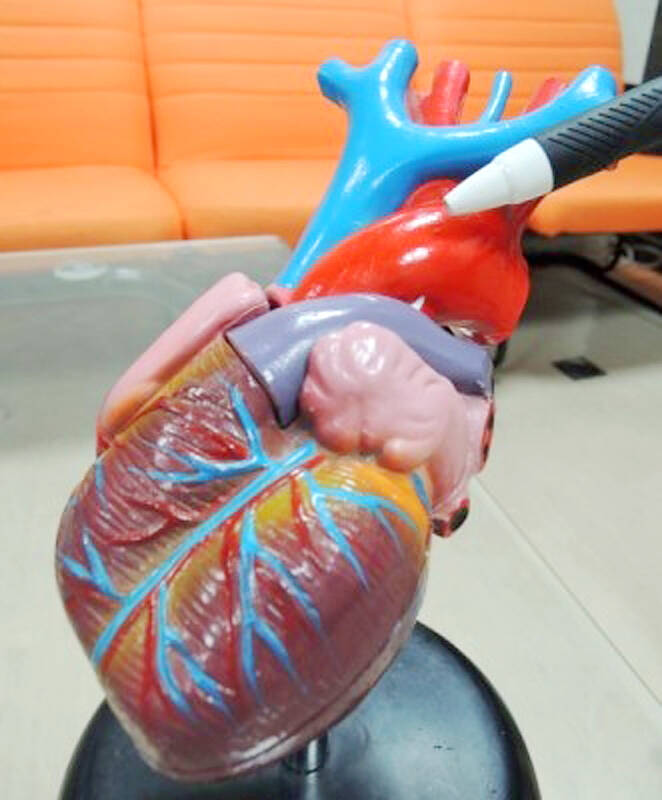Cardiovascular
Hostile people prone to heart disease: study
MENTAL PROBLEMS:
Stressful situations triggering a ‘fight or flight’ response can have harmful effects and make people more prone to cardiovascular diseases, an expert said
-
By Jason Pan / Staff writer, with CNA
People with a hostile mindset, depression, anxiety or “Type D” personality are more prone to cardiovascular diseases, a study by Taiwanese academics suggested.
The research by Weng Chia-ying (翁嘉英), professor of psychology at National Chung Cheng University, and Lin Ting-kuang (林庭光), medical secretary at Dalin Tzu Chi Hospital in Chiayi County, has been published in the Journal of Internal Medicine of Taiwan.
“The results of our study, also confirmed by research overseas, showed individuals having hostility, anxiety or depression, and ‘Type D’ personality types tend to experience harmful effects on their hearts” Lin told a press conference on Aug. 20.
Photo: Taipei Times file
“Type D” is used to descrive people with intense negative emotions.
When early humans in prehistoric times faced large predators and other threats, their bodies would react by activating a “fight or flight” response to escape from a certain death, Lin said.
“We no longer need such an intense response to flee in modern society compared with early humans facing dangers while hunting, but we still experience various stressors and unexpected situations,” he said.
Stressful situations that trigger the “fight or flight” response raise blood pressure, and they have harmful effects on arterial circulation, he said.
Certain groups feel the effects of stress worse, including people with a hostile personality, who are prone to anger and negative emotions, and self-isolation, Lin said.
People who suffer from depression or anxiety disorder, and those with “Type D” personality, are also more prone to having health issues caused by stress, he said.
Smokers, alcohol consumers, people who ignore doctors’ advice, and those with unhealthy habits are also more likely to suffer from cardiovascular issues, Lin said.
“It is very difficult to change an individual’s habits and personality,” he said.
When people are aware of having a negative personality, they should do more outdoor activities, socialize, try to quit smoking and seek advice from clinical psychologists and medical professionals on ways to cope with stress.
Dalin Tzu Chi Hospital and National Chung Cheng University run a “mind-clearing and stress-reducing camp” that lasts eight weeks to help people change their behavior and develop more positive emotions.
Since the camp was started 10 years ago, hundreds of participants have had beneficial outcomes, Lin said.
Comments will be moderated. Keep comments relevant to the article. Remarks containing abusive and obscene language, personal attacks of any kind or promotion will be removed and the user banned. Final decision will be at the discretion of the Taipei Times.

